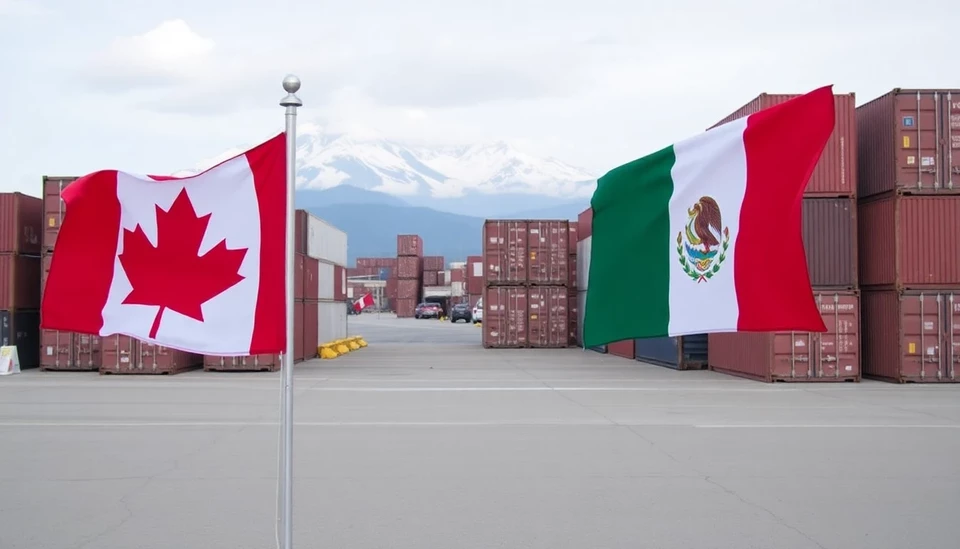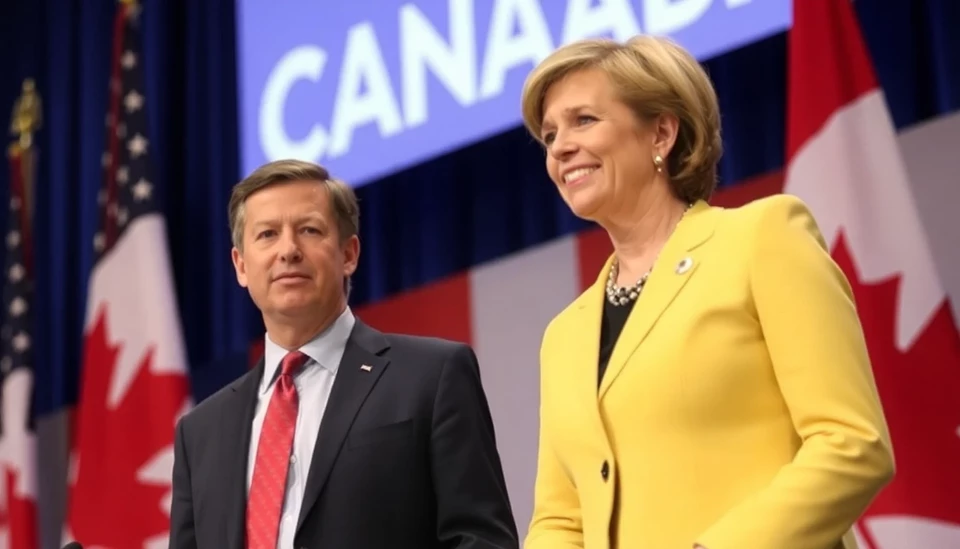
In a recent development showcasing the complexities of North American trade relations, Canada and Mexico have managed to navigate the initial waves of new tariff proposals from the United States. This marks a significant shift from previous tariffs introduced under the Trump administration, which saw both nations as primary targets.
As President Biden's administration seeks to restructure America’s trade relationships, it appears that both Canada and Mexico have strategically positioned themselves to avoid the most severe economic repercussions from the new tariff policies. The U.S. has been ramping up discussions around tariffs aimed at several trading partners, but thanks to informal negotiations and timely diplomatic efforts, Canada and Mexico seem to have escaped the brunt of these measures.
This development is particularly crucial as the three countries, closely linked through the USMCA agreement (United States-Mexico-Canada Agreement), strive to enhance their economic collaboration post-pandemic. The Biden Administration's focus appears to be on encouraging manufacturing within the U.S. while also ensuring that the economic health of its closest allies is preserved, hence avoiding an outright trade war, which could lead to detrimental effects on the continent's economies.
Details emerging from the Capitol indicate that the Biden administration has acknowledged the vital roles Canada and Mexico play in the U.S. supply chain. For instance, the automotive sector, which relies heavily on parts and production capabilities from both nations, stands to suffer greatly if tariff barriers are enforced. Recognizing this interdependence, the administration has displayed a willingness to engage constructively with Canadian and Mexican officials to address these issues before they escalate into full-fledged trade disputes.
As the geopolitical landscape evolves, the economic dynamics among North American nations remain under scrutiny. Canadian and Mexican policymakers have been proactive in their diplomatic communications, aiming to solidify their positions and advocate for continued cooperation. This collaboration is especially vital in the face of rising inflation and global supply chain challenges exacerbated by the ongoing conflict in Eastern Europe.
Looking ahead, the outcomes of these negotiations will play a crucial role not only in the health of Canada and Mexico’s economies but also in the broader context of U.S. economic policy. The Biden administration's approach indicates a nuanced understanding of diplomatic relations and economic interdependence. Should the U.S. administration fully recognize the benefits of open trade with its northward neighbors, it could lay the groundwork for a more robust continental economy.
In conclusion, while the shadow of potential tariffs lingers, the diplomatic efforts and strategic positioning of Canada and Mexico suggest that these nations are not only prepared to defend their economic interests but are also looking to foster a collaborative atmosphere that benefits all parties involved.
As trade discussions continue to unfold, all eyes will remain on these transnational partnerships and the policies that will shape the future of North American commerce.
#Canada #Mexico #USMCA #Tariffs #TradeRelations #Economy #BidenAdministration
Author: Rachel Greene




